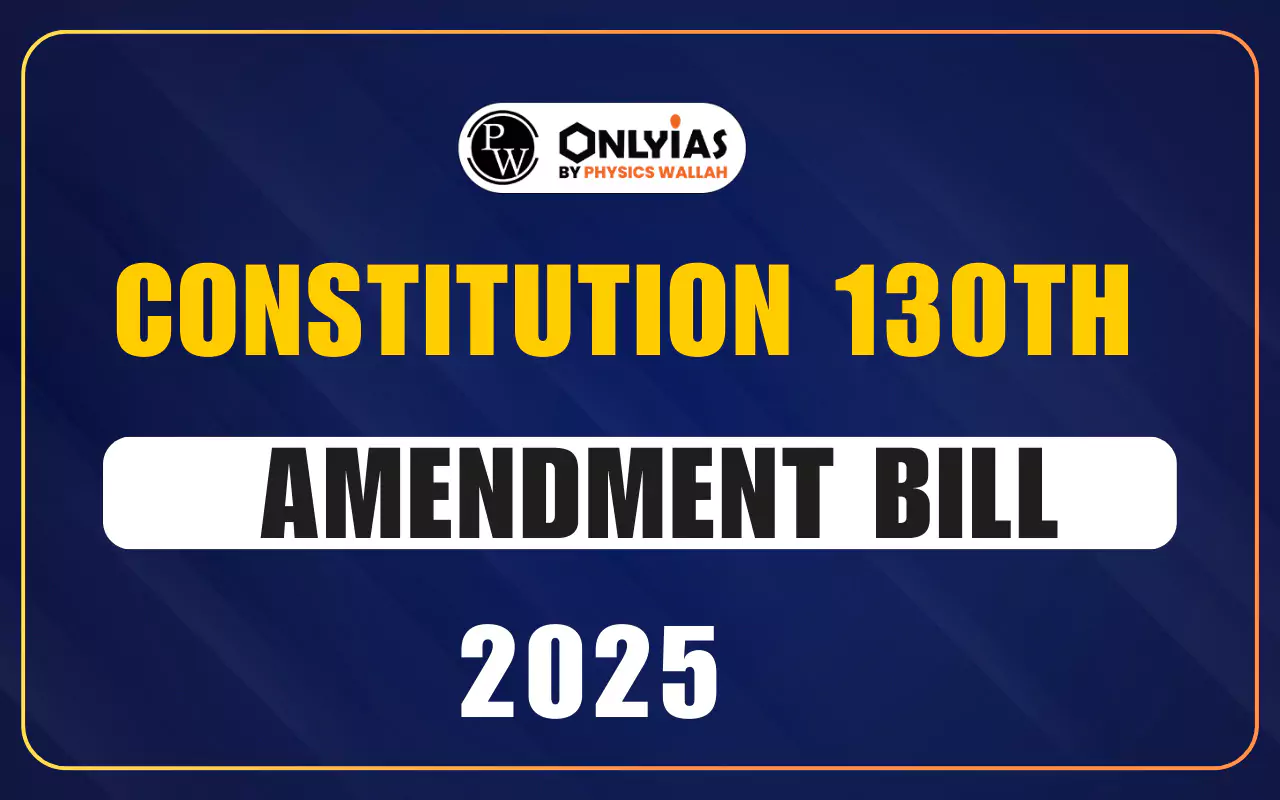The Constitution 130th Amendment Bill 2025 aims to remove Prime Ministers, Chief Ministers, and Ministers facing serious criminal charges if jailed for 30 days. Learn about its key provisions, rationale, political context, and impact on governance and accountability.

The Constitution 130th Amendment Bill 2025 was introduced in the Lok Sabha by Union Home and Cooperation Minister Shri Amit Shah on August 20, 2025. This landmark amendment seeks to close a long-standing gap in the Constitution regarding the removal of the Prime Minister, Chief Ministers, and Union/State Ministers who face serious criminal charges and are in jail.
The Bill is a part of the Modi government’s broader agenda to strengthen political integrity, ensure accountability in governance, and respond to growing public anger against corruption in politics.
For decades, Indian politics has faced a disturbing trend where leaders, including Chief Ministers, continued to govern from jail after being arrested on corruption or criminal charges.
When the Constitution was framed, its drafters did not imagine a scenario where leaders would refuse to resign on moral grounds even after being arrested. The 130th Amendment Bill now directly addresses this issue.
Along with the Constitution 130th Amendment Bill 2025 two other Bills were introduced in Parliament:
All three Bills are expected to be examined by a Joint Parliamentary Committee (JPC) before becoming law.
The Constitution 130th Amendment Bill 2025 marks a historic attempt to uphold constitutional morality, public trust, and clean politics in India. By setting clear rules for the removal of ministers facing serious criminal charges, it aims to protect governance from moral and legal crises.
Ready to boost your UPSC 2026 preparation? Join PW’s UPSC online courses today!
It is a bill introduced in Parliament to ensure that the Prime Minister, Chief Ministers, and Ministers cannot continue in office if they are arrested and remain in jail for 30 consecutive days on serious criminal charges.
The Bill seeks to amend Articles 75, 164, and 239AA to include explicit provisions for removal of Ministers at the Union, State, and UT levels.
If a Minister is jailed for more than 30 days, they will be removed from office. However, they may be reappointed if granted bail later.
It was introduced to curb the practice of Ministers or Chief Ministers continuing to govern from jail, strengthen moral standards in politics, and restore public trust in governance.
<div class="new-fform">
</div>